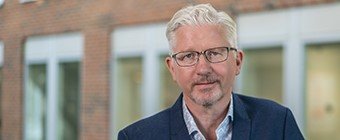Massive investments to improve sanitation in major African cities
COWI has taken on a leading implementation role in the multi-donor funded Lusaka Sanitation Programme and other major urban sanitation programmes in Sub-Saharan Africa. The aim is to improve public health.
06.03.2017
In Zambia’s capital Lusaka, rapid population growth and capacity constraints has led to a very high proportion of the urban population living in informal housing areas.
In fact, the present waterborne sewerage system only covers 10-15 percent of the population, posing a major threat to the environment and public health.
This is now going to change. Financed by the European Investment Bank (EIB), KfW, the World Bank the African Development Bank and the Government of Zambia, Lusaka Water and Sewerage Company (LWSC) has decided to invest nearly 240 million EUR in wastewater infrastructure in the densely populated city during the next five years. COWI is the selected Project Implementation Consultant in consortium with partners under a contract with the EIB.
”Sanitation services are one of the most neglected yet necessary components of any urban infrastructure. It is crucial to public health and the environmental situation, and has a positive impact on productivity due to improved health conditions. In short, the investments holds a significant improvement in general living conditions,” says Project Director Karsten Vesth-Hansen, COWI.
A shift in focus from water to sanitation
The works to be constructed under the Lusaka Sanitation Programme includes two trickling filter wastewater treatment plants, 520 km of sewer network, ten decentralised wastewater treatment systems (DEWATS), 100 public toilets, and some 12,000 on-site sanitation units. Adding up, the sewered share of the population is expected to double from the present level.
Stephen Dollery, COWI Team Leader in Lusaka, has worked on a range of water and sanitation projects in developing countries, and he endorses the dedicated focus on sanitation:
”Throughout the years I have spent working in water supply and sanitation projects in developing countries, WSS utilities, local and government authorities have generally focused mainly on water supply, because it has been perceived as a more pressing need and generates more revenue. Often this has meant that scarce resources did not stretch to addressing sanitation needs with severe consequences to the environment and public health. This project will make a welcome change,” says Stephen Dollery.
Other major sanitation projects
Apart from the sanitation project in Lusaka, COWI is currently implementing another two major urban sanitation contracts in Sub-Saharan Africa, one for Nairobi in Kenya and one for Mwanza in Tanzania.
”With the rapid urbanisation in developing countries, we finally see an increased focus on sanitation among governments and financing institutions for the major cities of Africa. We expect this trend will continue going forward benefitting public health and productivity,” says Karsten Vesth-Hansen.
FACTS
Sanitation improvement is among UN’s recently adopted Sustainable Development Goals (6.2) to “by 2030, achieve access to adequate and equitable sanitation and hygiene for all and end open defecation, paying special attention to the needs of women and girls and those in vulnerable situations”.
In 2015, 4.9 billion people globally used an improved sanitation facility; 2.4 billion did not. In 2015, 68 per cent of the global population was using improved sanitation facilities compared to 59 per cent in 2000. Nevertheless, the unsafe management of faecal waste and wastewater continues to present a major risk to public health and the environment.
PROJECT DETAILS
The Lusaka Sanitation Programme, Project Implementation Consultant
PERIOD:
5 years
Contracting Authority:
European Investment Bank, EIB
Technical Assistance funding:
Investment Facility (Subsidy envelope)
Promotor:
Lusaka Water and Sewerage Company, LWSC
Consortium:
COWI A/S (Project Implementation lead), PM Group and Artelia
Get in contact

Søren Kragh Pedersen
Head of Group PA & PR
Communication, Denmark
Tel:
+45 2025 7018
skpn@cowi.com